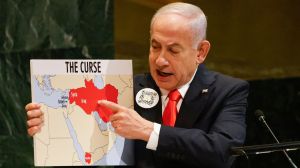A fresh start with Pakistan 2010?
ISLAMABAD, Aug 12: On midnight between August 13 and 14, Prime Minister Nawaz Sharif will address the nation as part of the celebrations to...

ISLAMABAD, Aug 12: On midnight between August 13 and 14, Prime Minister Nawaz Sharif will address the nation as part of the celebrations to mark fifty years of Pakistan’s Independence. The next day, he will announce “Pakistan 2010”, a brain child of his government to plan for the country’s future. Goals will be set and a plan evolved as to how ambitious targets can be achieved.
Ahsan Iqbal, a member of Parliament and the co-ordinator for the programme says, “We have realised that in the past although we did a very good job in developing plans, we failed to meet targets.” Iqbal, along with colleagues, insists that Pakistan 2010 is different.
Tariq Banuri, a social scientist and consultant for the programme, explains that the purpose of Pakistan 2010 is three pronged. “First, we are aiming at economic competitiveness, economic growth and increase in productivity. Second, we are planning for an improvement in quality of life, focusing on society. Finally, we will emphasise security and law and order.”
In essence, Pakistan 2010 stresses areas where the country has done badly in the past fifty years. When Bapsi Sidhwa in her book, The Bride, wrote about partition and events that followed, her statement that “when Jinnah, the Father of the Nation died, the country was entrusted to step-fathers,” she wasn’t off the mark. Similar sentiments prevail among Pakistanis as they celebrate 50 years of Independence on August 14. Bad governance has been the bane of Pakistan’s existence. However, the concept of a “failed state”, espoused by various forums, is being dismissed by most in Pakistan. “We may have lost a half of our country in 1971, but we have survived through various tests. We are not a `failed state’.” says one senior member of Sharif’s Government.
The despondency underlying the celebrations has more to do with the achievements of Pakistan and less with the claim that Pakistanis feel that the nation has failed. In fact, many say that the simple manner in which the occasion is being celebrated is heartening. “The simple message, visible like lightening on the horizon, is that we have made a mess of freedom which we achieved in the midst of turmoil as well as heart-warming hope. Here is an opportunity to look at the past and chart out new strategies for the future,” says journalist Ghazi Salahuddin.
The question being asked by people is whether the 2010 programme, which Sharif holds close to his heart, is truly a step in the direction of good governance. Asma Jahangir, a celebrated lawyer recommends that input from institutions that are being targeted is necessary. “I would restrict myself to speaking on the judiciary. The recommendations that the programme has given are unacceptable,” she says.





- 01
- 02
- 03
- 04
- 05


























